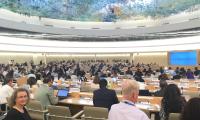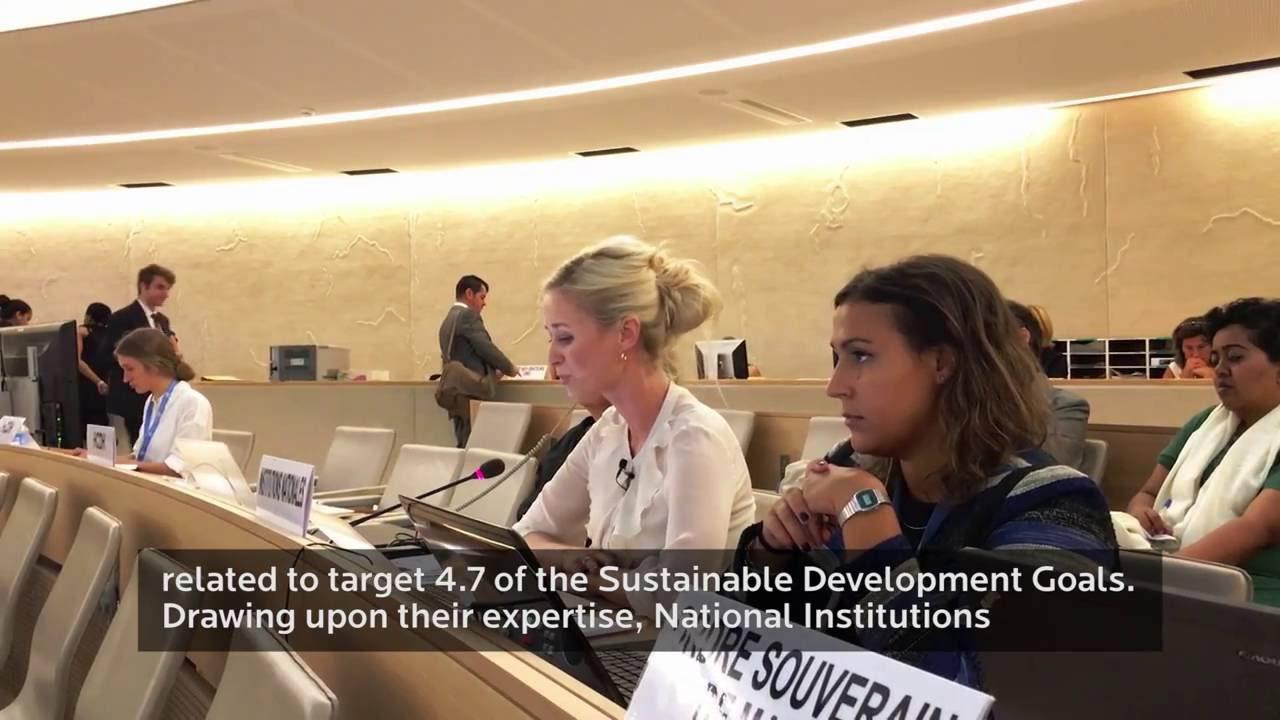Statement urges UN to make use of National Human Rights Institutions

The Danish Institute for Human Rights (DIHR) will read a statement on behalf of the 75 members of the Global Alliance of National Human Rights Institutions (GANHRI) at the High-Level Panel Discussion on the fifth anniversary of the United Nations Declaration on Human Rights Education and Training. The event will take place at the 33rd session of the UN's Human Rights Council on September 14 in Geneva.
Statement
In the statement GANHRI are stressing the unique role of National Human Rights Institutions (NHRIs) in promoting effective policies for human rights education (HRE).
"Human rights education is the very core of the human rights project. We cannot expect people to demand rights and to respect and uphold the rights of others when they do not know about rights and responsibilities. And duty bearers need to know and be capacitated in order to respect to rights of citizens, weather they are civil servants in the public administration, police enforcement personnel or social workers. And in this context the National Human Rights Institutions have a huge role to play", says Cecilia Decara, Senior Adviser, DIHR.
The statement from GANHRI points out three ways that the states can benefit from the enhanced strategic role of NHRIs recognised by the Human Rights Council. First, states are encouraged to invite NHRIs to support the advancement of the implementation of HRE in the formal education sector. Secondly, NHRIs have the potential of serving as independent advisers to parliaments and responsible educational authorities on HRE. The UN member states should acknowledge this position and invite NHRIs to contribute to the implementation and evaluation of human rights education programmes. Finally, NHRIs have the potential to play a key role in monitoring and data collection related to target 4.7 of the Sustainable Development Goals that aims at mainstreaming human rights education across the education sector at the national level and thereby guide the global process as envisioned in target 4.7.
High-Level Panel
The statement from GANHRI is one out of many statements made during the High-Level panel in Geneva. The panel aims at generating recommendations on national implementation of HRE based on good practices and current opportunities presented by representatives from civil society, states and observers.
The panel’s objective is to highlight the role of HRE in achieving the right to education, explore how HRE can prevent discrimination and extremism, review the information on national implementation of HRE, examine the efforts to implement HRE and identity the future opportunities for HRE.
Future opportunities
HRE is embedded in the Sustainable Development Goals and 2030 Agenda. Target 4.7 under goal number 4 aims at mainstreaming HRE across the education sector at a global level. According to Cecilia Decara, the NHRIs hold an often-overlooked competence as monitors and key advisors on human rights education. An increasing number of NHRIs will be capacitated through a peer process on data collection and mapping of human rights education in 2017.
"We see that the implementation of human rights education in the formal education sector is a major challenge, and may not be prioritized by the member states. And we would like to point out that NHRIs are strategically equipped to take the lead on this", says Cecilia Decara, senior adviser at the DIHR.
DIHR is looking into opportunities on guiding the global processes on data collection on human rights education with regards to defining specific indicators and related metadata and methodologies for assessing the implementation of HRE as envisioned in target 4.7 under the Sustainable Development Goals.

